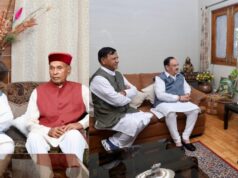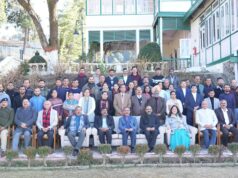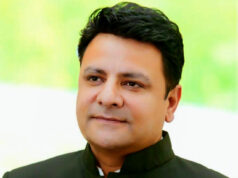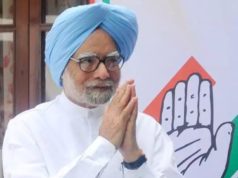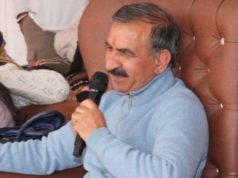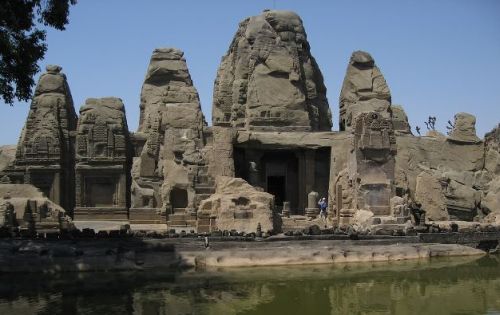
In a letter written to the Prime Minister, Dr. Manmohan Singh, Himachal Pradesh Chief Minister Prem Kumar Dhumal has drawn his attention towards a peculiar and a typical situation arisen due to the provisions of the Ancient Monuments and Archaeological Sites and Remains Act, the National Monuments Authority Rules, 2011 and the Ancient Monuments and Archaeological Sites and Remains Rules, 2011. The principal Act have been passed with the objective of protecting and preserving the heritage but these are turning out to be against the very spirit of culture, heritage conservation and preservation, he added.
In his letter Dhumal pointed out that the Acts and Rules have been passed without the prior consultation with the State Government which was against the spirit of federalism and Centre-State relations. He said that the seemingly innocuous provisions were self-defeating for the people whose heritage these intend to preserve. These provisions were acting as a barrier in the day to day living of the people who were major stakeholders, he said.
Chief Minister said that the Act/Rules provided that no civic activity including providing drainage, construction/repair of a school or hospital can happen within the radius of 100 meters from the outer boundary of the acquired land of a protected monument. This areas shall be known as the ‘Prohibited’ area. Any civic activity in this zone shall require the permission of a central authority, the National Monument Authority (for the whole country as one). Besides, there is a Regulated Areas of 200 meters whose permission is also to be granted by National Monument Authority barring only a few defined cases of repair and restoration. In our State the Competent Authority notified is Director, Language and Culture.
Chief Minister said the in the era of decentralization, accessibility and quick relief, the Act seems to work in reverse with one Central Authority at the Centre and one in the State. In each case the citizen has to apply (with detailed drawings, five sets, paper and other details) to Competent Authority i.e. only one authority in the entire State who would in turn get the spot inspected and then send the case with recommendation to the National Authority i.e. single authority in the entire country who would decide the case. He said that the experience so far has been that if the property is within 10 meters rejection is the ‘natural’ outcome.
Prem Kumar Dhumal brought to the notice of the Prime Minister the specific geographical historical background of Himachal Pradesh with respect to its cultural archaeological heritage. Himachal has more than 4000 temples which have religious, historical and archaeological importance. He said that almost every village has its own deity and a temple is dedicated to it. These temples are live monuments and were centre to the life of hilly people. Similarly, the State had 40 protected monuments under the Act which were in eight districts of the State. The 300 meter radius cover entire town and there was hardly any area left which is ‘out of bound’ for any civic activity. This can be seen from the sample Google Earth Maps for Mandi, Chamba and Tabo (where 1000 years old monastery was situated).
Chief Minister said that in the State, Competent Authority has no power to grant permission even in construction of public amenities like drinking water facilities, toilets, kiosk facilities for physically challenged, facility of parking etc. The time lines prescribed also makes it difficult and lengthy to adhere to in tribal areas due to heavy snowfall in winter months e.g. Lahaul-Spiti, Pangi and Bharmour.
Prof. Dhumal said that the State Assembly Himachal Pradesh had passed a Unanimous resolution on 21 December, 2011 that the provisions of the Act and the Rules be amended for the hilly State of Himachal Pradesh.
Chief Minister said that the existing regulatory framework to grant permission for big developmental projects (dams, hydro-projects, cement plants, highways etc.) can integrate the heritage conservation as integral part, the local map approving authorities such as Municipal Corporations, Committees, Town Country and Planning Department can on merit locally.
Chief Minister has urged the Prime Minister to take immediate steps to redress the genuine concern of the States so that the heritage, both tangible and intangible which had been handed over to the present generation was further enriched for the future generations.



